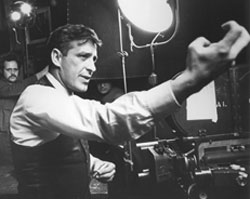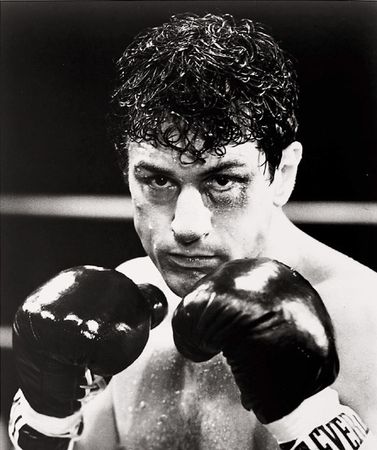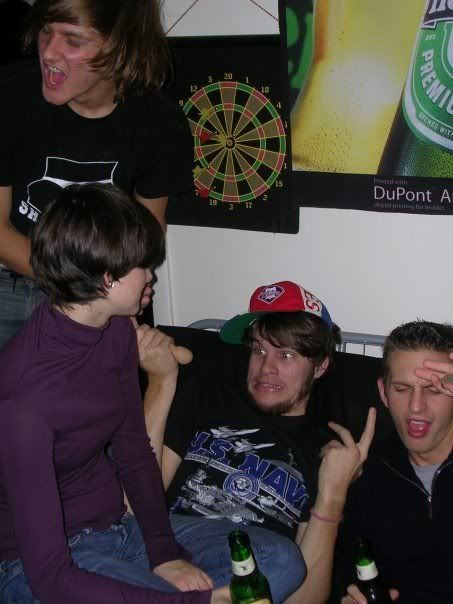In the world of independent filmmaking there is much speculation and disagreement over what really is “indie”. The auteurs, the critics, the film buffs, the public; all have come to different conclusions as to what is the “true” definition of independent film. Even when looking up the word ‘independent’ in various dictionaries, one finds a melange of different clarifications. In Merriam-Webster’s English Dictionary, ‘independent’ means “not subject to control by others”. For Dictionary.com, ‘independent’ is “not relying on another or others for aid or support”. In the Official Scrabble Dictionary, it simply means “not dependent”.
These are three different definitions from three different definers. This serves as an emblematic parallel to the world of filmmaking, where there are many, many people who define what indie is, and therefore, there are many, many definitions. Charles de Gaulle once famously said, “History does not teach fatalism. There are moments when the will of a handful of free men breaks through determinism and opens up new roads”, and it may take several different groups of the motivated to break away from the Hollywood mold.

John Cassavetes once famously said that if too many people liked his film after a screening, he would have to go back and change it. He wanted there to be debate and reaction amongst the audience members. For a modern parallel: in the mediocre HBO miniseries
Entourage, the main characters discuss how “bad is good”, and any movie that divides audiences is hip and independent. Teen heart-throb Adam Brody, one of the multiple headlining actors in David Wain’s
The Ten, said in an interview with
Premiere that “[i]f people don’t get it, that’s probably cool. When everybody loves something, I start to question it,” (I didn't really get
The OC so I guess that's why it was so cool). These people are all referring to films that are independent in spirit. Big time filmmakers like Martin Scorsese, the Coen Brothers, and Darren Aronofsky all had independent starts, but have moved on to big-budget studio films. However, these people continue to be associated with independent films and are considered indie filmmakers.

One of the most interesting films in the category of independent in spirit is Martin Scorsese’s 1980 classic,
Raging Bull. Today,
Raging Bull is considered a milestone achievement in not only Scorsese’s career, but in the annals of filmmaking itself. It was voted the fifth greatest film of all time by
Entertainment Weekly and was named the twenty-fourth greatest film of all time by the American Film Institute. However, at the time of its release,
Raging Bull proved divisive to audiences. In 1980, Robert Redford’s
Ordinary People took the Oscar for best picture, while
The Empire Strikes Back was on its way to making nearly 300 million dollars. Meanwhile,
Raging Bull made only 23 million dollars – barely recouping its production fees.
One of the main cultural codes that
Raging Bull essentially broke is that the era of the emotionally-motivated, character-driven films was all but extinct. Films about individuals of the 60s and 70s like
Easy Rider and
One Flew of the Cuckoo’s Nest helped to define the era, but the late 70s and early 80s gave way to blockbusters like
Jaws and
Star Wars. The language of the craft had changed; now people wanted epic tales of spectacle that would simultaneously touch their hearts and tingle their spines. However, Robert DeNiro’s rendition of infamous boxer, Jake La Motta, is a lesson in internal, rather than external, strife. The film is about La Motta’s life, and how he came to be such an irrefutable fuckhead. Viewers at the time were turned off by the idea of a protagonist also being an unsavory character. “During the 80s […] which was probably one of the most repressive times in cinema,” says B-movie enthusiast Quentin Tarantino, “There seemed to be so many rules about cinema, as far as [the idea that] heroes can’t be […] unlikable”.

Big heroes were the main things audiences wanted to see in the 80s; people that were always perfect, always brave, and never wrong. As far as boxing movies go, people wanted their hero to be strong and heroic like Sylvester Stallone’s character in
Rocky. What people got was not an action-heavy hero picture, but a grim tragedy about a man’s interpersonal conflicts. “Since so little of the running time is devoted to ring action,” wrote film critic Phil Villarreal, “most of La Motta's personality is sketched out in character moments, as the Raging Bull perilously applies his blind boxing strategy to personal affairs”.
As a result, Scorsese also broke some of the era’s artistic and cinematic codes. In the years after
Rocky was released, American movie theaters were inundated with new tales of great dudes with red gloves. Conversely,
Raging Bull was about an antihero. His violent boxing matches were metaphors for his violent emotional conflicts. Artistically,
Raging Bull is steeped in metaphor. Depending on La Motta’s mindset, Scorsese freely [changed the boxing ring’s] shape and size to suit his needs--sometimes it's claustrophobic, sometimes unnaturally elongated”. Cinematically, Scorsese wanted to sho

w La Motta's imperfection as accurately as possible. He shot the film in black and white to match the time period, even though almost every film was being shot in color by the 1980s. The shots and angles are used to bombard not just the boxers in the ring, but the audience as well. One of the most cinematically innovative parts is that “Scorsese broke the rules of boxing pictures by staying inside the ring” (Roger Ebert). Today it is hard to find a fight scene that doesn’t copy his dramatic in-your-face style.
In the world of narrative codes,
Raging Bull is first and foremost a tragedy. The viewer watches Jake La Motta’s downward spiral helplessly. Normal character arcs are a gradual uphill climb in most films, perhaps with a couple troughs on the way. La Motta’s character arc is the opposite; he’s at the height of his happiness in act one and totally miserable by the time the film ends.
Internet celebrity cum movie reviewer
Harry Knowles made an interesting point about this sort of narrative arc while reviewing Darren Aronofsky’s Requiem for a Dream. Knowles complained about how the MPAA had given Requiem an NC-17 rating for very intense graphic images of drug use and prostitution. In a highly passionate review, Knowles reprimanded the MPAA, exclaiming, “The system is broken. This is a film that MUST be seen, and by forcing a studio of integrity to release it Non Rated, then bullying the theaters into enforcing it like it is NC-17 […] is a CRIME!”. Essentially, Knowles argued that a film should not be censored or disliked simply because it is dark or shocking, because there are real life events like the ones depicted in every dark and shocking film. In Requiem, the real hero is the characters’ drug addictions, just like in Raging Bull where the real hero is La Motta’s animalistic temperament; because both of those things are what have the uphill narrative arc in each film, not the characters they destroy.
Even though Raging Bull is considered a classic today, it was not well received when it was released. When a film comes along that is largely divisive, it is most likely because of its innovations – it somehow managed to break the mold of normalcy, thereby making many viewers uncomfortable. Scorsese had a reputation for making films with strong characters and dark topics, which is why he is largely heralded in the indie community, despite his major studio backing (MGM) and multi-million dollar budgets.
Two filmmakers following in Scorsese’s bloody footprints, Quentin Tarantino and Robert Rodriguez, have just released the kitschy horror double-feature throwback
Grindhouse, consisting of one feature length film by each director. Undoubtedly this production will make hundreds of millions of dollars worldwide (which will more than make up for its 50 million dollar production cost), yet both Tarantino and Rodriguez are largely considered to be independents. Perhaps it is because Rodriguez and Tarantino both decided to leave the Director’s Guild of America [DGA], citing too much censorship and a lack of creative control.

Rodriguez said in a
Total Film interview, “Don't give me any money, don't give me any people, but give freedom, and I'll give you a movie that looks gigantic”. Furthermore, as Rodriguez’s longtime friend and co-worker, Tarantino had a few choice words to say about the pseudo-tyranny that large production studios have been said to impose: “I would love to do an opening like that in a movie (referring to the intro to Pedro Almodovar's
Matador, in which the protagonist is seen jerking off to slasher films). And somebody goes, ‘Well, they wouldn’t let you’. My answer to this every time is […] ‘Well, who’s they?’ […] There is no they, and by saying that there is a they, you’re creating a they.” Despite their – or perhaps because of their – disdain for being told what to do, Tarantino and Rodriguez have been able to make whatever films they’ve wanted for the price that they name, cementing their places as two of the world’s most successful indie filmmakers.
Which leads to the other form of indie filmmaker: one that removes themselves from the studio system, which usually means a drastically reduced budget. These people can be regarded as the
fiscal independents. Feature length cinema is an expensive medium for anyone that doesn’t have at least a couple thousand dollars to spare. Money, after all, is where the power lies, and the power lies in the studios in Hollywood, California. It’s almost improbable “to be an American director and not be a Hollywood director. You need validation to some degree by that system” (filmmaker Scott Siegel).
Some would argue that the "true" independents are the ones that forgo studio involvement in favor of having complete creative control over their craft. The most well known
fiscal independents are the ones that are able to either hold another job to pay for their films or have someone with some money to spare executive produce their film. Although people like Tarantino, Scorsese, and Aronofsky use studio budgets and studio production facilities, they all got their start finding funding for their early work outside of the studio system.

John Cassavetes was able to fund much of his work in the 60s and 70s because he “held [the] unique position in American film, maintaining dual careers as a respected actor in Hollywood movies and as a fiercely iconoclastic director” (Emanuel Levy,
Cinema of Outsiders). People like
Bottle Rocket writer/director Wes Anderson were able to get funding for their first features from prominent people in the industry who recognized their fledgling talent. Typically, a small debut that becomes successful is likely to become a gateway for an indie filmmaker into the studio system. This is how a
fiscal indie becomes someone who is
indie in spirit, because they now have the financial security of a studio backing.
One could argue that there really is
no difference between people like John Cassavetes – who paid for his own films to be made – and Martin Scorsese – who was able to get studio backing for his films. The only difference is the superficial concept of who is paying for the film. Take David Lynch for instance; he was able to get his start by having the Italian producer Dino De Laurentiis fund his early projects and now is able to put out movies produced by the monolithic Universal Studios. He still creates work that is undoubtedly independent in spirit, because they all speak with a clear, distinct, David Lynch voice. It seems almost totally irrelevant to call a movie “indie” or “not indie” based on how much money it cost to make. Just look at modern day George Lucas; he has paid hundreds of millions of his own dollars to produce the most recent
Star Wars trilogy, but it can almost be assumed that almost no one would consider George Lucas an independent filmmaker.
In his book
Chuck Klosterman IV, author and pop-culture analyst Chuck Klosterman offers some views on why it is that people want their voices heard, but also why it is inevitable. Klosterman writes, "There’s always this peculiar disconnect between how people exist in the world and how they think the world is supposed to exist […] [People] don’t merely want to hold their values; they want their values to win. […] [T]his is why people so often feel ‘betrayed’ by art and consumerism, and by the way the world works."

How this relates to independent cinema is that the definers of independent cinema and anyone who cares at all about cinema all want their ideas to prevail. People want their unique voices to be heard. Everything new and innovative in the film world is a certain auteur’s response to the current state of cinema. Cassavetes’s
Shadows was a response. Scorsese’s
Raging Bull was a response. Tarantino’s
Reservoir Dogs was a response. All of this is because, in the end, none of the filmmaking process is about money. It’s about the final product. Was it made for the commercial gain of a studio; or was it made to say something important to the creators? It all comes down to the fact that each one of the multitudes of definers of independent cinema want to have their thoughts be a part of the vernacular. That’s the whole point of independent cinema: to break the monotony of the norm and invent some fresh new language to speak.
Labels: Grindhouse, independent film, John Cassavetes, Martin Scorsese, Quentin Tarantino, Raging Bull












